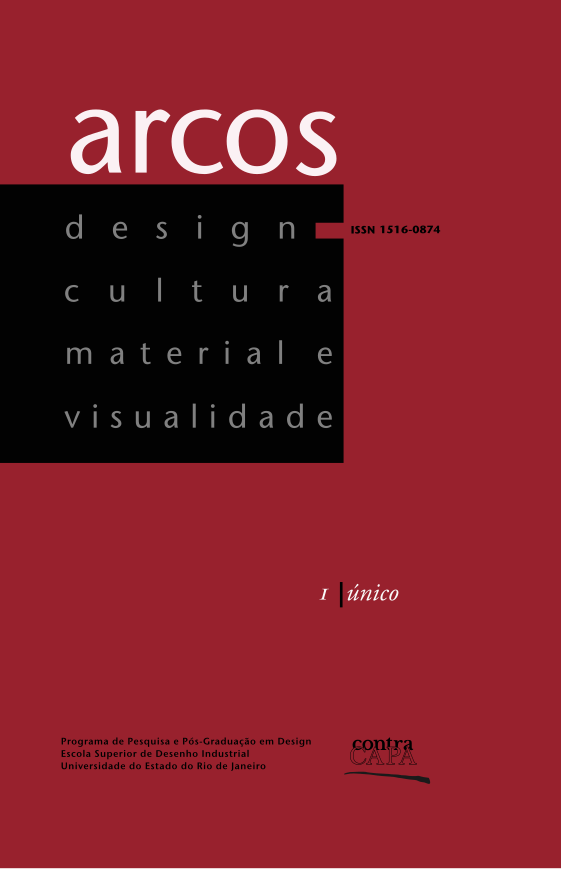Design, cultura material e o fetichismo dos objetos
Resumo
O presente artigo sugere novas perspectivas sobre o papel do designer na sociedade industrial tardia através de uma análise das maneiras em que o design se relaciona à categoria maior da cultura material. Após um breve resumo do desenvolvimento histórico deste último termo, sugere-se que as atividades abrangidas pelo design pertencem a um processo mais amplo de investir os objetos de significados, processo este que pode ser descrito como uma espécie de ‘fetichismo dos objetos’. Através de uma análise das origens etimológicas da palavra ‘fetichismo’ – examinando as várias formas em que foi empregada na antropologia, na economia e na psicanálise – demonstra-se que esse conceito pode ser útil para pensarmos as maneiras em que os artefatos são produzidos e investidos de significados. Conclui-se que os designers devem usar tais categorias conceituais para repensar a sua abordagem do objeto projetado, o que pode ajudar a enfrentar os dilemas ideológicos gerados pelo declínio dos dogmas modernistas ao longo das duas últimas décadas e pela ascensão paralela da informática.
Downloads
Downloads
Publicado
Como Citar
Edição
Seção
Licença
Copyright (c) 2024 Arcos Design

Este trabalho é licenciado sob uma licença Creative Commons Attribution-NonCommercial-ShareAlike 3.0 Unported License.
Autores que publicam nesta revista concordam com os seguintes termos:
- Os Direitos Autorais dos artigos publicados na revista Arcos Design pertencem ao(s) seu(s) respectivo(s) autor(es), com os direitos de primeira publicação cedidos à Arcos Design com o trabalho simultaneamente licenciado sob uma Licença Creative Commons CC BY-NC-SA 4.0, a qual permite o compartilhamento do trabalho com reconhecimento da autoria e publicação inicial nesta revista. Para mais informações ver: https://creativecommons.org/licenses/by-nc-sa/4.0/
- O(s) autor(es) tem/têm autorização para assumir contratos adicionais separadamente, para distribuição não-exclusiva da versão do trabalho publicada nesta revista (ex.: publicar em repositório institucional ou como capítulo de livro), com reconhecimento de
autoria e publicação inicial nesta revista. - Autores têm permissão e são estimulados a publicar e distribuir seu trabalho online (ex.: em repositórios institucionais ou na sua página pessoal) a qualquer ponto antes ou durante o processo editorial, já que isso pode gerar alterações produtivas, bem como aumentar o impacto e a citação do trabalho publicado.


